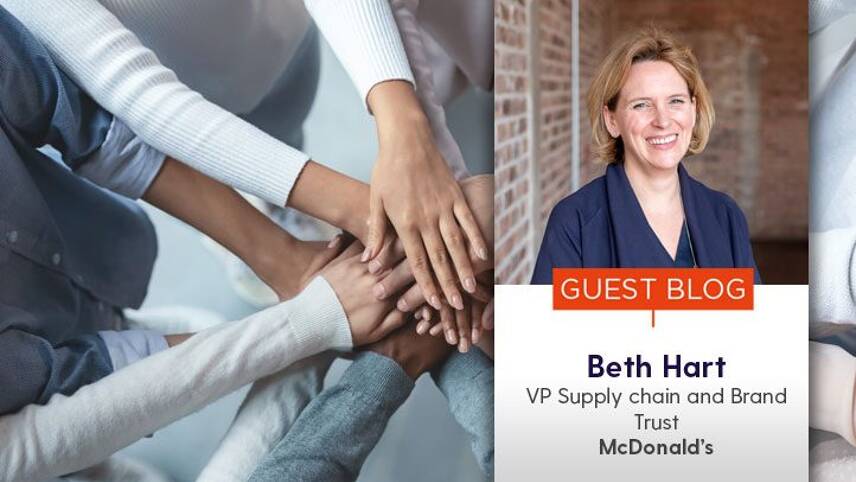Register for free and continue reading
Join our growing army of changemakers and get unlimited access to our premium content

I started my first graduate job in 1993, so have seen almost three generations of women progress through the workplace and while there has been progress, there is still much more we need to do. That need for change is perfectly captured in the #ChooseToChallenge theme for IWD this year. For me, there are three key areas where businesses and individuals need to rise to the challenge.
Firstly, businesses need to support and empower women. Critically, this commitment must be led from the top. Within my career, I have had the privilege of working with many female role-models, and have been inspired by seeing other women progress at a senior level, giving me the insight and drive to progress myself. My promotion to the board after a year at McDonald’s was a vote of confidence from our chief executive and has given me the self-belief to speak up and challenge. Not only does being on the board show other women that a working mum can rise through the ranks, but I believe I have a responsibility to invest that confidence in others. That means doing everything I can to be a role model, and champion the women I work with.
I am proud to manage a supply chain team which has many talented women at all levels, including two new female appointments to our Supplier Advisory Council. As the industry has been historically male-heavy, it’s both encouraging and refreshing to see such progression being made when it comes to those leading the charge on supply chain strategy, sustainability and ethical sourcing. My team are responsible for managing our suppliers, and making important decisions that impact the communities we source from and the communities we serve. That means we are in turn impacting the lives of women all over the world, from those who farm our beef in the UK & Ireland, grow the sesame seeds for our buns in Guatemala, to those sourcing the free-range eggs we crack for our breakfasts in Cumbria.
How we empower more women to succeed in business is critical. Flexible working is essential, and the pandemic has really opened people’s eyes to the widening gap in terms of gender inequality. I’ve been inspired by parents joining Zoom calls with children on their knees whilst delivering some of the most significant change in our business history, despite having more than ever on their plates. Whether it’s in the office or our restaurants, we are conscious of the pressures of everyday life, and are constantly looking at how we can help them manage their time. So going forward, it’s essential that businesses embrace flexible working as standard, so any parent can find the right balance to be able to progress in their career.
Secondly, it’s important we challenge ourselves to make workplaces as welcoming as possible to support women. So often in the supply chain sector, I see women with highly valuable specialist skills in nutrition, quality assurance or purchasing have children and feel like they can’t return. We must find a way to hold on to that talent and ensure women feel comfortable and supported in coming back to the workplace. Support networks, both in and out of the organisation are a vital part of this. I actively participate in three female networks, McDonald’s Women’s Leadership Network, Meat Business Women and Women in Food & Farming, and I encourage my team to build their own networks to learn from each other.
Thirdly, we must challenge what businesses mean by sustainability. With COP26 on the horizon, sustainability is top of the agenda for many organisations and that’s brilliant to see. But for any business to be truly sustainable, diversity, equality, and inclusion must be at the heart of its strategy. Put simply, if you get the people right, you will be in a better position to tackle our climate challenges. It’s something we really champion as a business – and we expect our suppliers to do the same.
There is plenty more that we can, and will do, but this International Women’s Day I urge business leaders to challenge themselves to do all they can to support and empower their female workforce. If they do, then the reward will be an inclusive and progressive culture that is best placed to tackle the biggest environmental issues we all face.
Beth Hart is Vice President of Supply Chain and Brand Trust at McDonald’s UK & Ireland



Unless McDonalds agree to stop selling food which kills people and stops ALL single use packaging which requires resources and energy to rpoduce, then this again is an example of GREENWASH!!! Just trying to look good to keep their outdated business models alive.